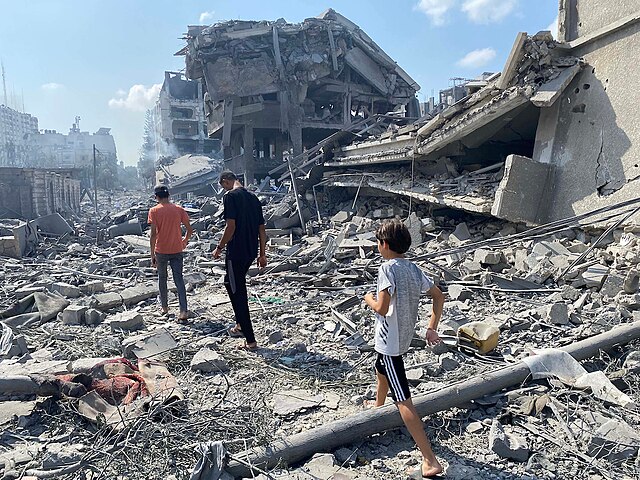
Michigan is home to some of the fiercest water protectors I know, and it’s not just because we have the good fortune of living near 21 percent of the world’s freshwater supply.
Instead, it’s because of the multitudes of threats facing our access to clean, safe drinkable water that has led to so many working tirelessly to secure a future where we can wholeheartedly declare that “water is a human right” and know that it is reality.
In Detroit, the United Nations rapporteurs investigated the water shutoffs in 2014 and found that officials controlling our public water system were violating human rights here in the United States. If water and environmental justice advocates promote the concept of a human right to water in this country, then certainly, we should support that same right elsewhere, including Palestine.
President Biden should be applauded for leading the federal government’s historic investment in our drinking water, wastewater, and stormwater infrastructure. But we should be terrified and ashamed that at the same time, we are funneling billions of dollars to secure our water future, we’re sending taxpayer dollars to Israel to destroy that same type of infrastructure in Palestine.
Beyond the literal earth-shattering devastation of bombs, the broad impacts of cutting off water, electricity, internet, and food supplies include more civilian deaths, declining health, and the spread of disease.
Wastewater treatment plants and water desalinization plants in Gaza are no longer functioning. Babies are being delivered without running water nearby. Children are drinking salt water to quench their thirst.
We’re moving forward with legislation addressing water shutoffs and affordability in Michigan. There’s a chronic debate that establishing a permanent water affordability program is just too darn expensive, yet our federal government has a seemingly endless supply of funding to help decimate the human right to water in Palestine.
According to the UN Office for the Coordination of Humanitarian Affairs, the average water consumption for all basic needs is around three liters per day per person in Gaza. Prior to Oct. 7, Palestinians already subsisted on less than the recommended minimum of 100 liters per day that the World Health Organization recommends, as Israel has controlled and restricted access to water for decades.
Access to clean drinking water is an environmental justice issue. I hope that fellow readers will make the connections between our shared humanity and our shared water and call for a ceasefire now and an end to weaponizing water.
